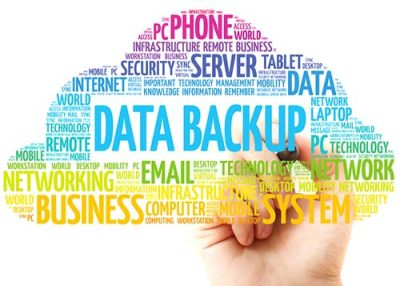Backup and Disaster Recovery Recommendations
Small businesses are the backbone of our economy, and for many entrepreneurs, their livelihood depends on the success of their venture. With so much at stake, it’s important to have a backup and disaster recovery plan in place to protect your business from unforeseen events. In this blog post, we’ll explore the importance of having a backup and disaster recovery plan for small businesses, and some of the steps you can take to create one.
Why is a Backup and Disaster Recovery Plan Important for Small Businesses?
Protect Your Data:
Small businesses rely heavily on their data, including customer information, financial records, and other important documents. In the event of a disaster, such as a fire, flood, or cyber-attack, this data could be lost, potentially causing irreparable damage to your business.
Minimize Downtime:
If your business experiences a disruption, such as a power outage or equipment failure, it can be difficult to get back up and running. A backup and disaster recovery plan can help you minimize downtime and get back to business as quickly as possible.
Maintain Customer Trust:
If your business experiences a data breach or other disaster that affects your customers, it can erode their trust in your business. By having a plan in place to respond to such events, you can demonstrate your commitment to their security and privacy.
Steps to Create a Backup and Disaster Recovery Plan
Assess Your Risks:
The first step in creating a backup and disaster recovery plan is to assess the risks to your business. This might include natural disasters, cyber-attacks, power outages, or other potential disruptions.
Develop a Plan:
Once you’ve identified the risks, you can develop a plan to mitigate them. This might include backing up your data, purchasing a generator, or developing a response plan in the event of a cyber-attack.
Test Your Plan:
It’s important to test your backup and disaster recovery plan regularly to ensure it works as intended. This might include running a mock disaster scenario or testing your backups to make sure they can be restored.
Keep Your Plan Up-to-Date:
Your business and the risks it faces will change over time, so it’s important to keep your backup and disaster recovery plan up-to-date. Review it regularly and make updates as needed to ensure it remains effective.
Conclusion
In today’s fast-paced business world, small businesses face a range of risks that can threaten their success. By creating a backup and disaster recovery plan, you can protect your data, minimize downtime, and maintain customer trust. By following the steps outlined above, you can create a plan that works for your business and helps you prepare for the unexpected. Remember, being prepared is the best defense against disasters, so don’t wait until it’s too late. Start creating your backup and disaster recovery plan today. Small businesses are the backbone of our economy, and for many entrepreneurs, their livelihood depends on the success of their venture. With so much at stake, it’s important to have a backup and disaster recovery plan in place to protect your business from unforeseen events. In this blog post, we’ll explore the importance of having a backup and disaster recovery plan for small businesses, and some of the steps you can take to create one.
For information about all of our Managed Services Offerings please visit our website Services Page
Upper Echelon Technology Group, LLC is a premier technology provider.
For more information on our Cybersecurity Offerings and other offerings please visit www.uetechnology.net
Schedule a consultation or call us at 1-800-225-1392
Ready to get started with better service, reliability and saving money on your IT spending?
Want to discuss our managed services programs?
Let’s schedule a free consultation.
Simply click the Magic Button below to get started.






